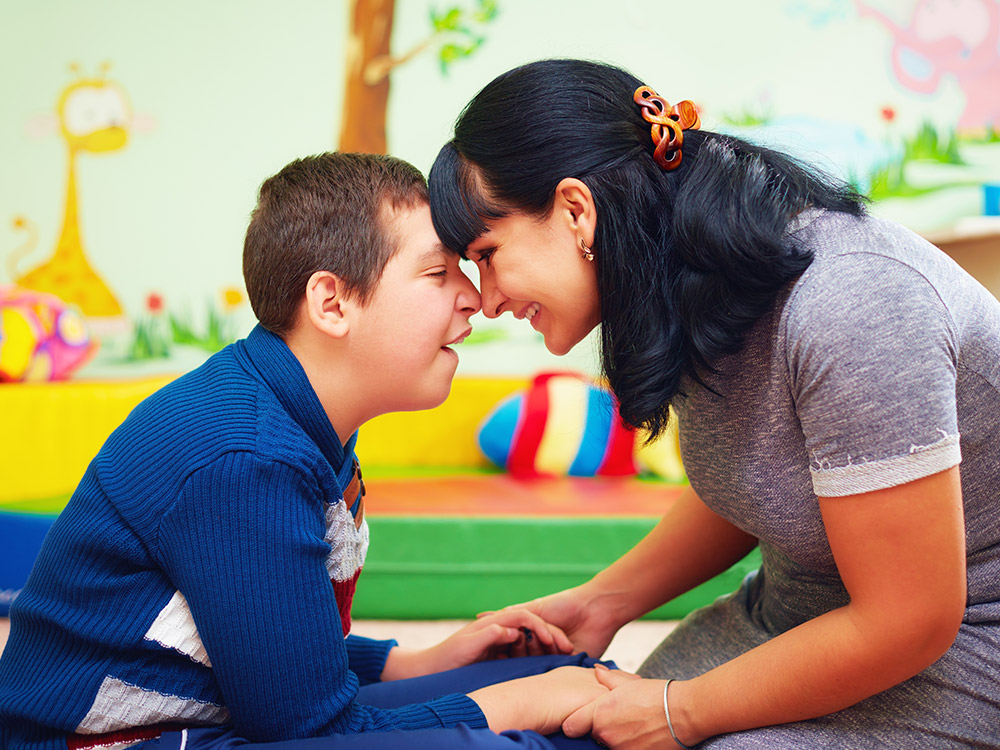Addressing Common Myths: What You Should Know About Autism Today
Addressing Common Myths: What You Should Know About Autism Today
Blog Article
Recognizing Autism: A Comprehensive Guide to Symptoms And Signs
Autism Range Disorder (ASD) encompasses a large variety of qualities that can significantly impact a person's social interactions and day-to-day performance. Comprehending these subtleties not only aids caretakers and teachers in providing appropriate support yet likewise cultivates a much more inclusive atmosphere for people with ASD.
Summary of Autism Spectrum Disorder
Defining Autism Range Disorder (ASD) entails acknowledging it as a complicated neurodevelopmental problem identified by a variety of obstacles in social interaction, interaction, and behavior patterns. The term "spectrum" mirrors the broad variability in symptoms and their seriousness, which can vary significantly from one individual to one more. ASD normally materializes in early youth, although some individuals might not obtain a diagnosis up until later on in life.
Variables influencing the advancement of ASD consist of hereditary tendencies and environmental aspects, although the exact reasons stay under investigation. Medical diagnosis typically relies on behavioral analyses, as there are no definitive clinical tests for ASD. Early treatment is vital and can dramatically boost results, concentrating on boosting interaction skills, social communications, and flexible behaviors.
Individuals with ASD might likewise show distinct toughness, such as exceptional attention to detail or specific locations of knowledge. Comprehending the diverse nature of ASD is important for cultivating a comprehensive setting that suits neurodiversity. Continued research is crucial for creating effective treatments and support group, enabling individuals with ASD to flourish and fulfill their possible within culture.
Typical Indications of Autism
Recognizing the common signs of Autism Range Problem (ASD) is important for early recognition and treatment. These indicators can differ extensively in seriousness and discussion, however particular features are frequently observed in people with ASD.
One of the most prevalent indications is a significant difficulty in maintaining and establishing eye get in touch with. People may additionally display minimal rate of interest in social interactions and reveal a preference for solitary play.
Sensory level of sensitivities are additionally common; people might panic or underreact to sensory stimulations, such as lights, sounds, or textures. autism. Language growth can be irregular, with some youngsters showing postponed speech or utilizing language in unusual methods, including echolalia-- repeating phrases or sentences listened to somewhere else
It is vital to keep in mind that not every person with ASD will certainly show all these signs, and the level of these behaviors can vary significantly. Early recognition enables timely assistance and resources, improving the lifestyle for those on the range.
Social Interaction Difficulties
Social interaction difficulties are a characteristic of Autism Range Condition (ASD), impacting an individual's ability to involve successfully with others. These difficulties can materialize in numerous means, including difficulties in launching and maintaining conversations, comprehending social signs, and reacting properly in social interactions.
People with ASD might have a hard time with nonverbal communication, such as eye contact, faces, and body movement. This can bring about misconceptions, as their communicative intent may not be appropriately analyzed by others. Moreover, they might locate it hard to comprehend the subtleties of tone and context, which are important for effective interaction.
In group settings, people with ASD may really feel overwhelmed and might not understand how to sign up with in conversations (autism). They might also show atypical conversational patterns, such as check this monologuing about specific passions without identifying social reciprocity
Furthermore, these obstacles can lead to social seclusion or difficulties in forming relationships, as peers might misunderstand their habits or communication style. Recognizing these social interaction challenges is vital for promoting helpful environments that advertise social skills advancement and boost the top quality of interactions for individuals on the autism range.
Sensory Level Of Sensitivities and Feedbacks
Lots of people with Autism Spectrum Disorder (ASD) experience heightened sensory level of sensitivities that can substantially impact their daily lives. An individual with ASD might find everyday sounds, such as a vacuum cleanser or crowded settings, overwhelmingly stressful, leading to anxiety or crises.
Sensory processing distinctions in people with ASD can additionally influence their capacity to participate in routine activities and social interactions. For instance, a child that is delicate find out to touch may resist physical love or prevent certain apparel materials. A preference for particular appearances or preferences can restrict nutritional options and create obstacles during nourishments.
Understanding these sensory sensitivities is important for acknowledging the distinct experiences of people with ASD. Awareness of their sensory profiles can cultivate far better interaction and assistance methods, producing an atmosphere that accommodates their requirements and enhances their top quality of life. Eventually, recognizing sensory level of sensitivities is a redirected here vital component of comprehending the wider range of autism.

Sustaining People With Autism
Reliable support for individuals with Autism Spectrum Problem (ASD) is important for enhancing their total wellness and cultivating independence. Assistance approaches must be tailored to meet the special requirements of each person, considering their toughness and difficulties.

Social abilities training can likewise play an essential function. autism. Engaging individuals in group tasks or role-playing situations can enhance their capacity to browse social communications. Additionally, it is important to educate household members, caretakers, and peers concerning ASD to foster a comprehensive and encouraging neighborhood
Final Thought
By cultivating improved interaction and social skills, people with autism can navigate their settings a lot more effectively. Ultimately, raised understanding and support can dramatically improve the quality of life for those impacted by ASD.
Autism Spectrum Problem (ASD) encompasses a vast variety of characteristics that can dramatically affect a person's social interactions and day-to-day functioning.People with ASD may battle with nonverbal communication, such as eye call, facial expressions, and body language.Lots of individuals with Autism Range Disorder (ASD) experience increased sensory level of sensitivities that can considerably influence their everyday lives.Sensory handling differences in individuals with ASD can additionally affect their capability to involve in regular tasks and social interactions.Comprehending these sensory level of sensitivities is vital for identifying the unique experiences of individuals with ASD.
Report this page